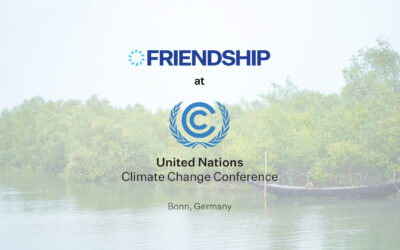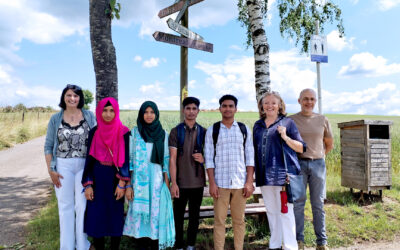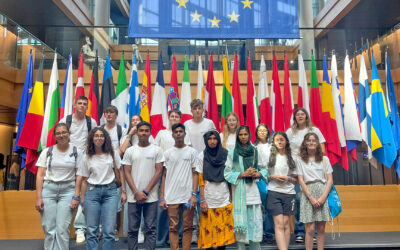While the world steps up on commitments made in Sharm-El-Sheykh last year, do the results of the COP28 negotiations really do justice to climate vulnerable countries?
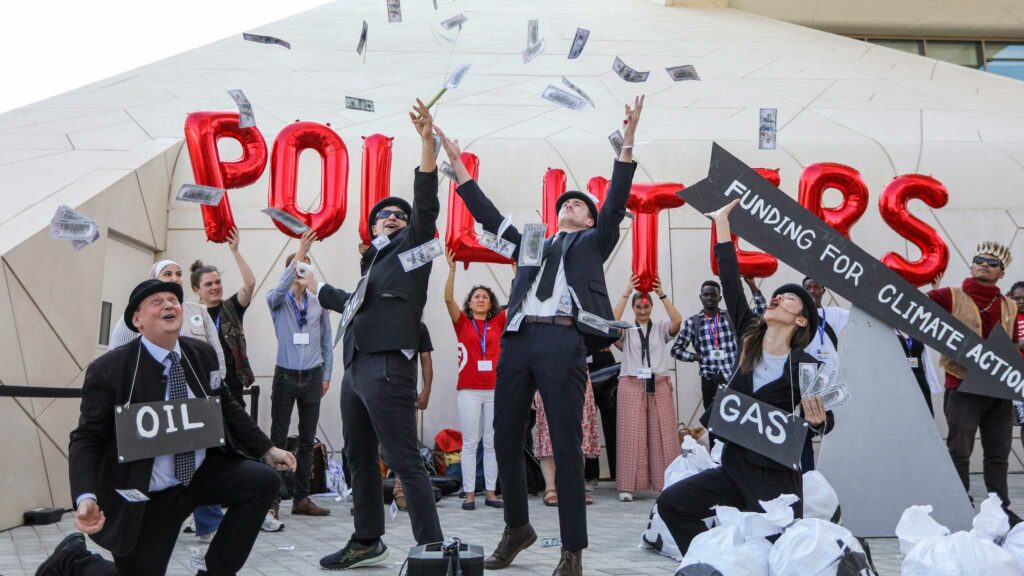
By Tahmeed Chaudhury
December 20, 2023
The 28th Conference of the Parties, otherwise known as COP28, the annual climate change conference organised by the United Nations Framework Convention on Climate Change (UNFCCC), had drawn to a conclusion on December 13. The COP28 negotiations were mired by controversy, with many questioning the legitimacy of the United Arab Emirates’ hosting the flagship climate conference being an oil-rich country.
As it was in the last two editions, negotiations went into overtime with nations struggling to find a middle ground on a deal to restrict the burning of fossil fuels. While differing opinions slowed down development of the draft resolution, protesters took over the perimeter of the expo city, chanting slogans and calling for a phase out of fossil fuel. They also advocated for the announcement of new adaptation finances for countries affected by the changing climatic patterns.
However, their urgent calls to action were overshadowed by the counter-propositions of pro-fossil fuel groups, particularly the Organization of the Petroleum Exporting Countries (OPEC), a union of countries whose economies rely on the export of oil and gas. OPEC remarked that the focus should rather be on decarbonisation and control of emissions, opposing strong language on the phasing out of fossil fuels. COP28 president Sultan Al Jaber fuelled the fire by claiming there is ‘no science’ that says phasing out fossil fuels will keep global warming under critical thresholds, whereas scientists and experts say otherwise.
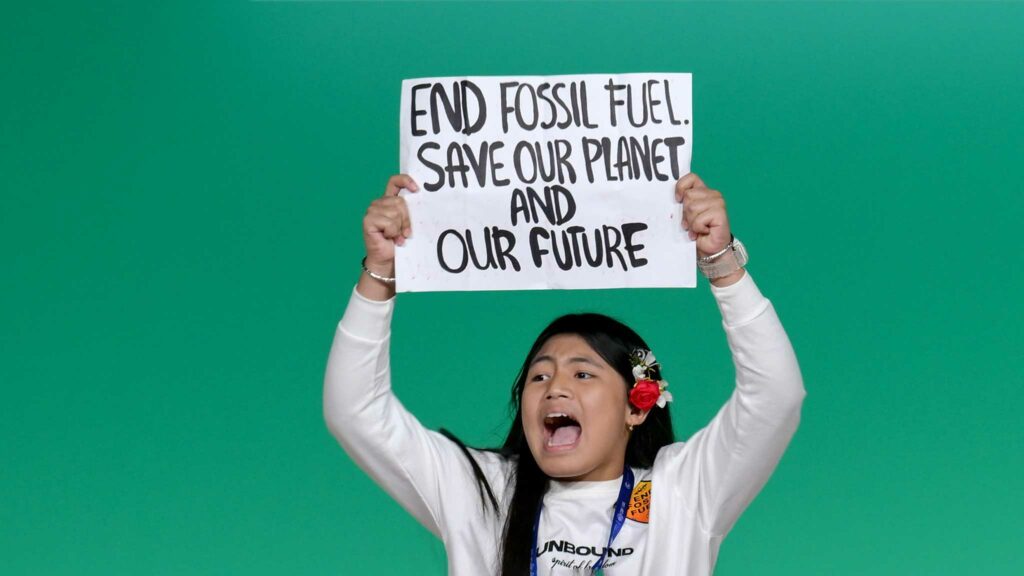
With disagreements and tensions running high in the blue zone, nations eventually reached a consensus and made commitments that according to experts, does not make the Dubai summit as successful as one may have hoped, but one where small steps were taken towards actions that may make a difference.
MAJOR DECISIONS:
The First Global Stocktake:
COP28 saw the historic signing of the First Global Stocktake. The document scrutinises the 2015 Paris Agreement, reviewing the progress on pledges made by signatories. The Global Stocktake takes into consideration all the elements under negotiation and may now be used as a manifesto to develop stronger climate action plans due by 2025. Moreover, it emphasises on the importance of parties taking robust actions towards the tripling of renewable energy capacity and doubling energy efficiency improvements by 2023. The next assessment will be carried out in 2028.
A controversial and puzzling deal on fossil fuel:
Despite disagreements and disputes regarding the phasing out of fossil fuels, the first text on the issue has finally been sanctioned. The nations agreed to ‘transition away’ from fossil fuel, instead of the complete ‘phase out’ as demanded by experts and activists and even dwindled down from the ‘phase down’ that was agreed on in COP27. Furthermore, the text also mentions the phase out of ‘unabated’ coal for usage as energy. However, it remains unclear as to how this will be implemented.
Loss and Damage fund made operational: First official pledges
After years of negotiation, the Loss and Damage fund was approved for the first time in the Sharm-El-Sheykh summit last year (COP27), with developed nations, responsible for the vast majority of emissions, committing to compensate the developing nations bearing the brunt of climate change adversities. This year, it has been made operational, with a number of nations pledging financial compensations. However, only 700m USD has been pledged thus far by countries including the hosts UAE, US, Germany, France, Italy and Japan.
Friendship founder Runa Khan pointed out that even a tiny fraction of the amount spent on fossil fuel subsidies (USD 7 trillion in 2022) could cover the 400 billion USD of loss and damage caused by climate change.
“This is a profound injustice, and exhibits a lack of responsibility and compassion towards climate impacted nations,” she said.
The Global Adaptation Plan
The resolution also calls on countries to double their climate adaptation finances and for developed nations to fulfil commitments—which remained largely unfulfilled. Furthermore, more than a 100 nations endorsed tripling reliance on renewable energies to reduce reliance on fossil fuels.
Simon Stiell, UN Climate Change Executive Secretary, said, “Whilst we didn’t turn the page on the fossil fuel era in Dubai, this outcome is the beginning of the end. Now all governments and businesses need to turn these pledges into real-economy outcomes, without delay.”
The next instalment, COP29, will be held in Azerbaijan.
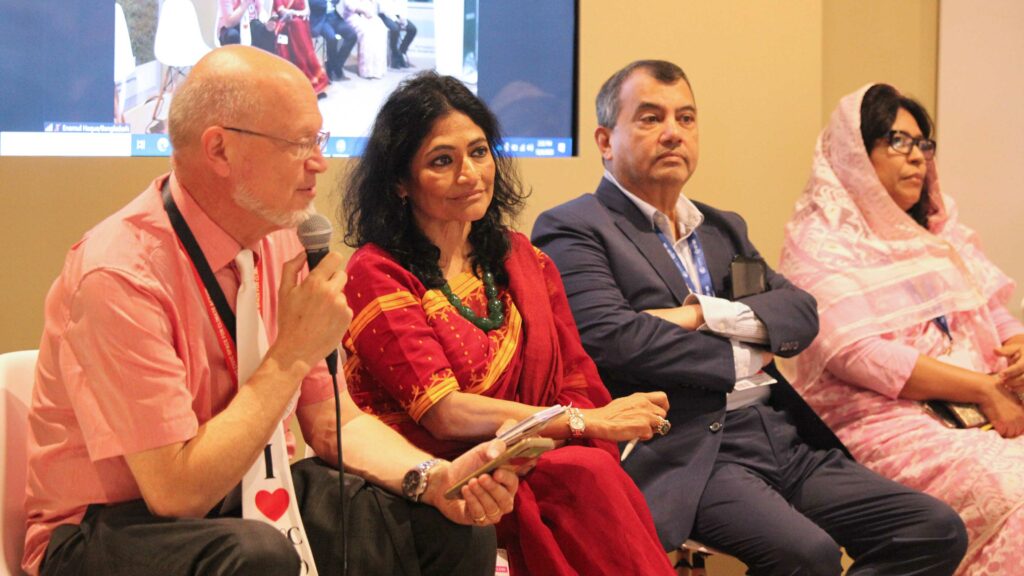
Friendship at COP28
Friendship participated at COP for the fourth time, taking voices of communities impacted by climate change in Bangladesh to Dubai. Friendship hosted four side events and participated in a handful of others, engaging in conversation with a number of experts, activists, NGOs and civil service organisations about its climate adaptation practices and advocating for climate financing solutions.
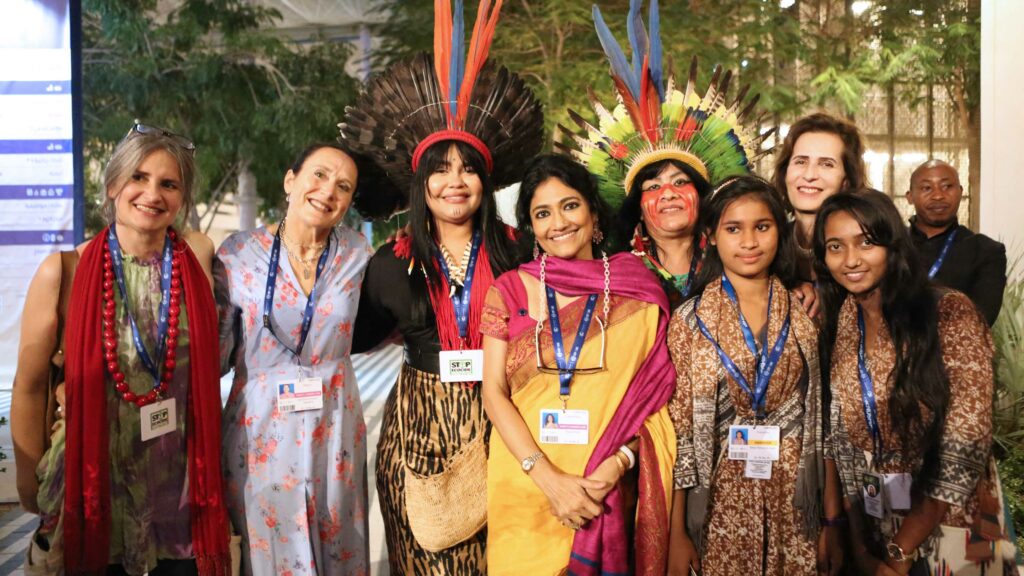
For the first time, two students from Friendship secondary schools, Mosammat Ronzina Akhter and Mosammat Biuti Akhter, travelled to Dubai to participate in plenary sessions and share their grievances from natural disasters induced by climate change. Both come from communities residing in shifting sandbar islands (chars) in the middle of a major river in northern Bangladesh and are susceptible to frequent floods and erosions that lead to the loss of lives and livelihoods and destruction of homes.
Runa Khan thinks that despite not living up to its expectations, the negotiations did produce outcomes to build on in the future. “Even the weakest commitments coming out of COP28 – given its oil-stained presidency and the backdrop of enormous wealth accumulated from the spoils of fossil fuels – are a glimmer of hope, no matter how faint.”

